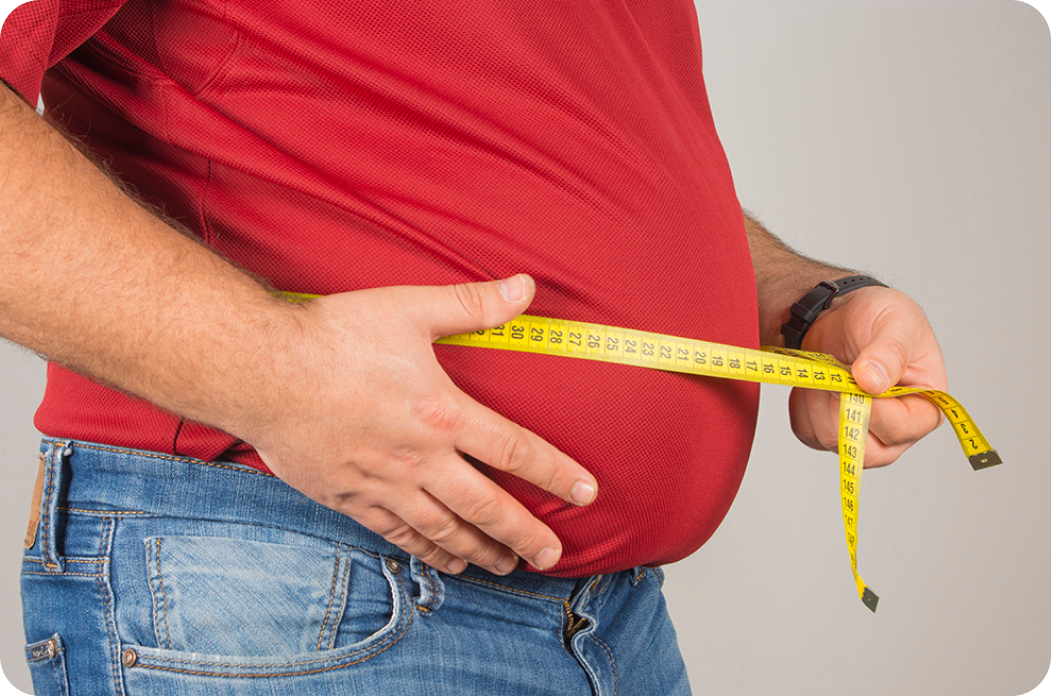You probably enjoy a nice cup of coffee to wake up. Coffee is like a morning superhero. It helps you start your day in a good mood and gives you a warm, cosy feeling like a hug. And on top of that, it gives you a big burst of energy to tackle whatever comes your way. Yet, can coffee also aid in losing weight?
In this Blog, we'll explore whether your daily cup of coffee could be a secret weapon for losing those extra pounds. We'll review the research and determine whether coffee can help you get a slimmer waistline.
Understanding Caffeine
Caffeine is the primary active compound in coffee and is known for stimulating the central nervous system.Coffee contains more than just caffeine. It's a complex beverage with various bioactive compounds, some of which may influence weight loss:
Chlorogenic Acid: Found in coffee beans, chlorogenic acid has been studied for its potential to reduce body weight by slowing down the absorption of carbohydrates and promoting fat metabolism. ( PMID:20064576)
Polyphenols: Coffee is rich in polyphenols, which have antioxidant properties and may help control inflammation, a factor linked to obesity.
Fibre: A cup of black coffee contains a small amount of soluble fibre, which can promote feelings of fullness and reduce overeating.
What's the maximum daily caffeine intake?
The FDA suggests that most healthy adults can safely consume up to 400 mg of caffeine daily, roughly equivalent to 4 or 5 cups of coffee. However, individual reactions to caffeine can vary.
How does caffeine work-
Adenosine Receptor Blockade:
Caffeine has a structure that's very similar to adenosine.Caffeine can fit into the same receptors that adenosine binds to. However, here's the critical difference-Caffeine, unlike adenosine, does not activate these receptors. It essentially acts as a "blocker.When you consume caffeine, it effectively competes with adenosine for these receptors.Caffeine occupies the receptors but doesn't deliver the calming and sedative signals that adenosine does.
As a result, adenosine's relaxing and sedative effects are inhibited or muted. Because adenosine's sleep-inducing signals are temporarily suppressed, you feel more awake and alert.
Your brain doesn't receive the usual signals to become drowsy or initiate the natural inclination to rest.
This is why many people turn to caffeine, like in coffee, to stay awake and focused, especially when they need to be alert, such as in the morning or when studying late at night.
Increases metabolism
Caffeine can boost metabolic rate (PMID:7369170) through several mechanisms:
A.) Thermogenesis: Caffeine stimulates thermogenesis, generating heat and energy in the body through food digestion. This increase in thermogenesis requires additional energy expenditure, contributing to a higher metabolic rate.
B.) Coffee can help mobilize fat from the adipose tissue: -
Caffeine wakes up your body's alarm system - the nervous system. It sends a quick message to your fat cells, telling them to let go of stored fat.
This happens because caffeine boosts the hormone epinephrine, also called adrenaline. Think of adrenaline as the messenger that travels through your blood to your fat cells, urging them to break down fats and release them into your bloodstream.
Adrenaline, or epinephrine, is a hormone and neurotransmitter the adrenal glands produce in response to stress or danger. It plays a crucial role in the body's "fight or flight" response, helping to prepare the body for action in challenging situations.Adrenaline binds to specific receptors on the surface of fat cells, triggering a series of biochemical reactions. This signalling cascade ultimately activates an enzyme called hormone-sensitive lipase (HSL).HSL breaks down stored triglycerides (fat) within fat cells into free fatty acids and glycerol. These freed fatty acids are then released into the bloodstream, where muscles and other tissues can use them as energy sources.
But here's the catch: releasing fat into your blood won't make you lose weight. To shed those extra pounds, you must burn more calories than you eat. This is called a "negative energy balance."You can achieve this balance by eating less or moving more. And if you want a little extra help, caffeine is like a nudge for your metabolism.
C.) Increased Resting Metabolic Rate (RMR): Caffeine can temporarily raise the resting metabolic rate, the number of calories your body burns while at rest. The impact can persist for many hours following caffeine intake.Studies show that when people, whether lean or postobese, took 1 cup of 100 mg of caffeine, their bodies burned 3-4% more calories at rest (PMID: 2912010). Unfortunately, the impact is not as noticeable in individuals who are overweight.
Potential benefits of coffee on weight loss-
1.) Boosting Metabolic Rate:
Coffee is often praised for its ability to speed up metabolism, which can help with weight loss.
The key player here is caffeine, a natural stimulant in coffee beans. Caffeine can temporarily increase your metabolic rate, burning more calories even when you're at rest. This effect is known as thermogenesis and can contribute to weight loss over time.
2.)Appetite Suppression:
Consuming caffeine influences certain neurotransmitters in your brain that can reduce feelings of hunger (PMID: 28446037). This can lead to fewer calories throughout the day, which benefits weight loss.
3.)Enhanced Physical Performance:
Caffeine can improve physical performance by increasing alertness, energy levels, and endurance. With that extra boost, you may find yourself working out harder and longer, which can help you burn more calories than usual. (PMID: 33255240) A review of studies found that drinking coffee with 2 to 7 mg per kilogram can boost fat burning during exercise, especially for people who aren't very active.
4.) Promoting Fat Oxidation:
Caffeine can encourage your body to use fat as a source of energy. It stimulates the release of stored fatty acids from fat cells, making them available for energy production. This process, known as lipolysis, is especially beneficial for individuals looking to reduce body fat.
5.) Antioxidant Benefits:
Coffee contains antioxidants that shield cells from free radical damage. Some studies suggest that antioxidants in coffee, such as chlorogenic acid, may play a role in weight management by influencing how the body processes fat and sugar.
6.) Potential Appetite Control:
Coffee may contribute to appetite control and reduced calorie intake by impacting appetite hormones like ghrelin and peptide YY. These hormones regulate hunger and fullness signals in your body, and coffee consumption may help keep them in check.
Limitations and considerations
A) Individual Variations: Coffee's effects on weight loss can vary significantly from person to person. Genetics, tolerance to caffeine, and overall health play a role in how a person responds to coffee's influence on metabolism and appetite.
B.) Tolerance and Habituation: Caffeine tolerance refers to the reduced sensitivity or responsiveness of the body to the effects of caffeine over time. The body can adapt to its presence when individuals regularly consume caffeine, whether through coffee, tea, energy drinks, or other sources. This adaptation leads to a diminished response to caffeine's stimulatory effects, and individuals may find that they need to consume more caffeine to achieve the same level of alertness or other desired effects. Regular coffee drinkers can develop a tolerance to caffeine over time. The development of caffeine tolerance is primarily due to changes in the brain's receptors.
Coffee sticks to adenosine receptors and tricks your brain into creating more of them because it believes the existing ones are all occupied. However, it can't detect adenosine in your system. So, it generates more receptors to help adenosine do its job. This is your brain's way of staying balanced when consuming caffeine regularly. With more receptors to fill, the same caffeine doesn't have as strong an effect on you.
C.) Cycle and Breaks: To mitigate caffeine tolerance, some individuals choose to cycle their caffeine intake by taking periodic breaks from consumption. This allows the body to reset its sensitivity to caffeine. During these breaks, withdrawal symptoms may be experienced.
D.) Sleep disruption: Consuming caffeine too late in the day, especially in excessive amounts, can disrupt sleep patterns. Poor sleep quality and insufficient sleep can hinder weight loss by impacting appetite regulation and metabolism.
E.) Calorie Content: Coffee's weight loss benefits can be offset if it's loaded with high-calorie additions like sugar, cream, or flavoured syrups. Choosing low-calorie or unsweetened options is important when incorporating coffee into a weight loss plan.
F.) Hydration: Coffee is a diuretic, leading to increased urination and potential dehydration if consumed excessively. Encourage clients to maintain proper hydration by balancing coffee consumption with water intake.
G.) Health Conditions: Some individuals may have medical conditions or sensitivities that make caffeine consumption less advisable. Conditions like heart arrhythmias, anxiety disorders, or certain gastrointestinal issues may warrant caffeine restriction. Always consider your health history and consult with a healthcare professional when necessary.
Conclusion
The relationship between caffeine and weight loss is a fascinating area of study. While caffeine offers certain potential benefits for those on a weight loss journey, it's important to approach this connection with a balanced perspective.
Caffeine's ability to boost metabolism, suppress appetite, and enhance physical performance can certainly aid in shedding extra pounds. However, it's not a magic solution. Individual responses to caffeine can vary widely; over time, the body may develop tolerance, diminishing its effects.
Moreover, the context of caffeine consumption matters greatly. Loading your coffee with high-calorie additives or drinking it late in the day, which can lead to sleep disruptions, can counteract its benefits. A holistic approach to weight loss that includes a balanced diet, regular exercise, and lifestyle modifications remains essential.
Incorporating coffee or caffeine in moderation and within a well-rounded weight management strategy can offer a valuable boost, but remember that sustainable and healthy weight loss is a journey that requires patience, consistency, and a multifaceted approach.





